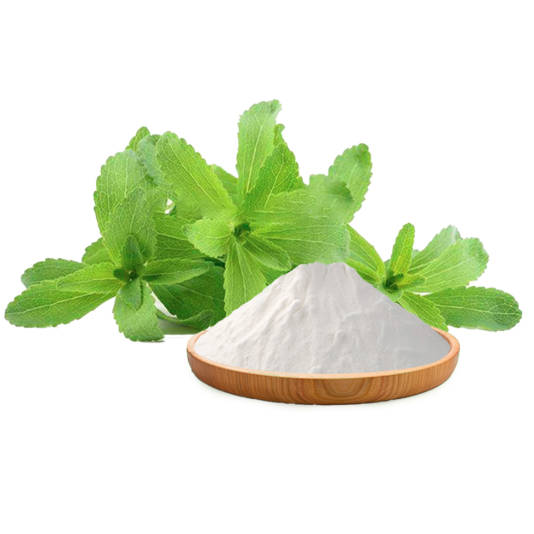Stevia könnte mehr sein als nur ein kalorienfreier Süßstoff. Aktuelle Forschungen von Universität Hiroshima legt nahe, dass Steviablattextrakt, wenn er mit bestimmten Bakterien aus Bananenblättern fermentiert wird, Bauchspeicheldrüsenkrebszellen gezielt bekämpfen und abtöten kann, ohne gesunde Nierenzellen zu schädigen.
Die Ergebnisse, veröffentlicht am 28. April im Internationale Zeitschrift für Molekularwissenschaften, heben einen potenziellen neuen Weg für natürliche Krebsbehandlungen hervor.
„Bauchspeicheldrüsenkrebs ist nach wie vor eine der tödlichsten Krebsarten weltweit, mit einer Fünfjahresüberlebensrate von unter 10%“, sagte Narandalai Danshiitsoodol, außerordentlicher Professor am Institut für Probiotikawissenschaft für Präventivmedizin. „Es ist hochgradig invasiv und resistent gegenüber konventionellen Behandlungen wie Operationen, Chemotherapie und Strahlentherapie, was die Suche nach neuen, wirksamen Therapien so wichtig macht.“
Fermentation verbessert die krebshemmenden Eigenschaften von Stevia
Während frühere Studien auf das krebshemmende Potenzial von Stevia hindeuteten, war die Isolierung der verantwortlichen bioaktiven Verbindungen eine Herausforderung. Diese neue Studie untersuchte die Kraft von mikrobielle Fermentation, das Pflanzenextrakte strukturell umwandeln kann, um wirksame bioaktive Verbindungen zu produzieren.
Professor Masanori Sugiyama, korrespondierender Autor der Studie, erklärte:
„Die mikrobielle Biotransformation ist eine vielversprechende Strategie zur Verstärkung der pharmakologischen Wirkung von Pflanzenextrakten. In unserem Labor haben wir über 1.300 Milchsäurebakterienstämme aus Obst, Gemüse, Blumen und Heilpflanzen isoliert und untersucht.“
Für diese Studie fermentierten die Forscher Stevia-Blattextrakt mit Lactobacillus plantarum SN13T, wodurch das entsteht, was sie nennen FSLE. Sie testeten FSLE auf Bauchspeicheldrüsenkrebszellen (PANC-1) und verglich es mit nicht-krebsartigen menschliche embryonale Nierenzellen (HEK-293), sowie nicht fermentiertes Stevia-Extrakt.
Wichtigste Ergebnisse
FSLE war für Bauchspeicheldrüsenkrebszellen deutlich toxischer als nicht fermentierter Stevia-Extrakt, was darauf hindeutet, dass die Fermentation seine Antikrebswirkung steigert.
Gesunde Nierenzellen blieben weitgehend unbeeinflusst, selbst bei hohen FSLE-Konzentrationen.
Analyse identifiziert Chlorogensäuremethylester (CAME) als wichtigster Wirkstoff gegen Krebs. Durch die Fermentation wurde die ursprüngliche Chlorogensäure im Extrakt um das Sechsfache reduziert, was auf eine mikrobielle Transformation hindeutet.
CAME zeigte stärkere proapoptotische Effekte, was bedeutet, dass es Krebszellen effektiv zur Selbstzerstörung anregt.
„Unsere Ergebnisse deuten darauf hin, dass bestimmte bakterielle Enzyme Pflanzenstoffe in wirksamere Mittel gegen Krebs umwandeln können“, sagte Danshiitsoodol.
Was kommt als Nächstes?
Das Team plant, FSLE zu testen in Mausmodelle um seine Wirksamkeit im gesamten Körper zu bewerten und die optimale Dosierung zu bestimmen.
„Diese Studie wirft nicht nur Licht auf die Rolle von Lactobacillus plantarum SN13T bei der Verbesserung von Kräuterextrakten, sondern öffnet auch die Tür für den Einsatz von Probiotika als natürliche Antitumormittel“, fügte Danshiitsoodol hinzu.
Diese spannende Forschung deutet auf eine Zukunft hin, in der Stevia, ein bekannter Süßstoff, Teil innovativer natürlicher Therapien für Bauchspeicheldrüsenkrebs werden könnte.

